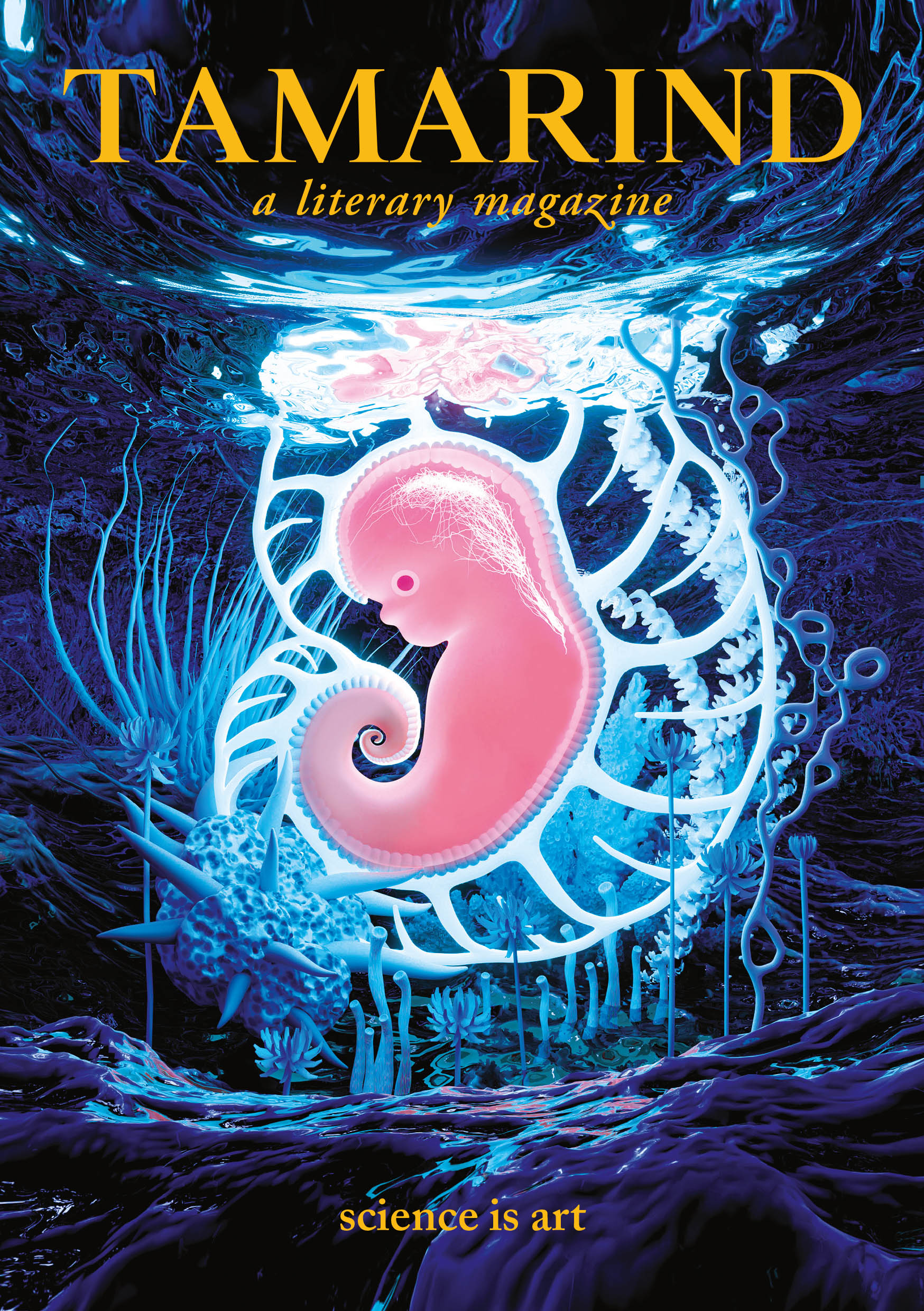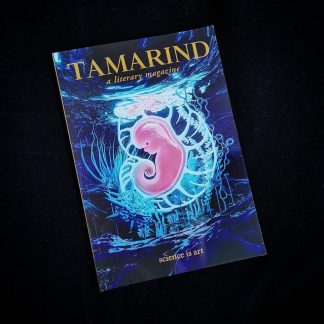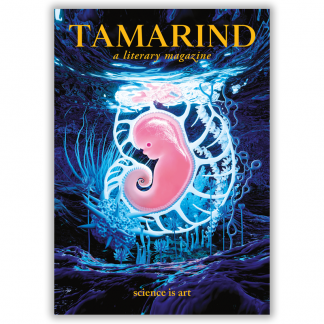Issue 4 of TAMARIND is now available for purchase in both print and digital. Issues 1, 2, and 3 are also available to buy, while stocks last.
You can now read and download current and past issues of the magazine online at read.tamarindlit.co.uk. Just enter your order number, issue number, and email address.
Aftermath, Lucy Zhang
Lucy Zhang writes, codes, and watches anime. Her work has appeared in The Willowherb Review, Interzone, Hayden’s Ferry Review, and elsewhere. She is the author of the chapbooks Hollowed (Thirty West Publishing, 2022) and Absorption (Harbor Review, 2022).
Digging Deep, Gary Grossman
Gary Grossman is Professor Emeritus of Animal Ecology at University of Georgia. His writing has appeared in over 30 literary reviews. Gary’s poetry book, Lyrical Years, is forthcoming (2023) from Kelsay Press, and his graphic novel My Life in Fish: One Scientist’s Journey, is imminent.
Wunderlich Park, Robert Trotta
Roberto Trotta is Professor of Astrostatistics at Imperial College London, currently on leave of absence to the International School of Advanced Studies in Trieste, Italy, where he is the head of Data Science. An award-winning author and science communicator, he is the recipient of the Annie Maunder Medal 2020 of the Royal Astronomical Society for his public engagement work.
Patience, Nancy J Fagan
Nancy J Fagan’s work can be found in Coolest American Stories 2023, Fiction International, Nifty Lit, and The Bangalore Review, among others. She is a registered nurse, has a BA from Mount Holyoke College, and an MFA in Writing from the Vermont College of Fine Arts. A US-based writer, she is revising her debut novel and loves writing historical, often medically themed, fiction.
Nyengu: Time, Weather, and Seasons in Malawi, Megan Ewald
Megan Ewald is a science communicator and writer based in Washington, DC. She served as a Peace Corps Volunteer in Malawi working in forestry and food security. Her work has appeared in Flyway, the Maritime Executive, and Unearthed.
The Fattening, Jean Gismervik
Jean Gismervik lives in Westchester, NY, where she works as a Director of Special Education. Her writing has appeared in Rolling Stone online (rollingstone.com), Urb Magazine, and You Give Me the Sun (St. Mary’s Press). She is currently working on a novel about New York City that examines themes of memory, time, and climate change.
Napoleon’s Chronometer, Thomas Belton
Thomas Belton is an author with publications in fiction, poetry, non-fiction, magazine feature writing, science writing, and journalism. He has been published many times, including for the journals Fteroa Logia, Mystery Weekly, Mystery Tribune, Constellations, South Shore Review, The Satirist, Adelaide, Meet Me at 19th Street, Cicada, and Art News. His professional memoir, Protecting New Jersey’s Environment: From Cancer Alley to the New Garden State (Rutgers University Press) won Best Book in Science Writing for the General Public by the New Jersey Council for the Humanities.
You Are What You Eat, David Sheskin
David Sheskin is a former university professor of psychology (with a specialisation in statistics and experimental design), and the author of The Handbook of Parametric and Nonparametric Statistical Procedures (Chapman and Hall). A writer of fiction and an artist, his work has been published in numerous magazines such as The Dalhousie Review, Puerto del Sol, The Satirist, and the Journal of Irreproducible Results.
Sawdust, Daniele Swetnam
Daniele Swetnam is passionate about exploring the relationship between the environment and virus evolution. She has a PhD in Microbiology and Immunology from the University of Texas Medical Branch and, when she isn’t nurturing experiments in the laboratory, she is analysing data in the quiet pockets of her historic island town or chasing bubbles with her family at the beach.
In Conversation with James Poskett
James Poskett is the author of Horizons: The Global Origins of Modern Science. Poskett is Associate Professor of the History of Science and Technology at the University of Warwick. He writes about the global history of science and technology, ranging from 17th century physics to 20th century biology. In 2013, he was shortlisted for the BBC New Generation Thinker Award.
Editorial
We brought together our fourth issue against the backdrop of what feels like perilous global instability; it is through this lens that many of our contributions can be seen. The voices in this issue echo our shared anxieties and call for a compassionate and humane understanding of science: one that works for us all.
Reverence for nature also runs throughout this issue, perhaps provoked by the catastrophic realities of climate change unfolding before our eyes. Fear for Earth’s future is reflected in several of our contributions, many of which investigate our symbiotic relationships with the Earth, nature, and other living things. With this in mind, Issue 4 of TAMARIND invites you to search for nourishment — physical, intellectual, and emotional — in the world around you.
In this issue we have essays from Nkhata Bay, Malawi, to the West Coast of the US; and stories which traipse through history, examine the shortcomings of competitive academia, and speculate about dystopian futures. This is rounded up by a fascinating Q&A with James Poskett, historian and author of Horizons, as he makes the case for a global history of scientific discovery.
We are so proud of TAMARIND Issue 4, and we hope you find it as thought-provoking, illuminating, and moving as we do.
The Tamarind Editors



